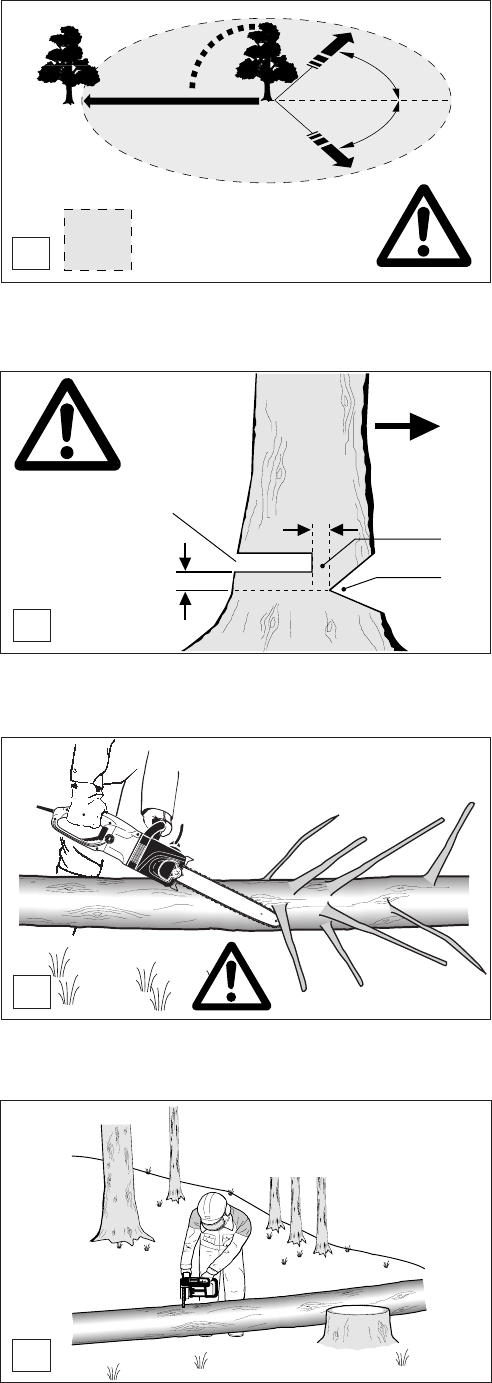
15
C
LIMB CUT
Keep work off ground
Leave support limbs until log is cut
D
Cut from top (overbuck)
avoid cutting earth
Felling a tree
When bucking and felling operations are being performed by two
or more persons, at the same time, the felling operation should
be separated from the bucking operation by a distance of at
least twice the height of the tree being felled. Trees should not
be felled in a manner that would endanger any person, strike
any utility line or cause any property damage. If the tree does
make contact with any utility line, the utility company should be
notied immediately.
The chain saw operator should keep on the uphill side of the
terrain as the tree is likely to roll or slide downhill after it is
felled.
A retreat path should be planned and cleared as necessary
before cuts are started. The retreat path should extend back and
diagonally to the rear of the expected line of fall as shown in Fig.
A. The next working place is at least 2 tree lengths away.
Before felling is started, consider the natural lean of the tree,
the location of larger branches and the wind direction to judge
which way the tree will fall. Remove dirt, stones, loose bark,
nails, staples, and wire from the tree where felling cuts are to
be made.
Notching undercut
Make the notch 1/3 the diameter of the tree, perpendicular to
the direction of fall as shown in Fig.B. Make the lower horizontal
notching cut rst. This will help to avoid pinching of either the
saw chain or the guide bar when the second notch is being
made.
Felling back cut
Make the felling back cut at least 2 inches (50.8 mm) higher
than the horizontal notching cut as shown in Fig. B. Keep the
felling back cut parallel to the horizontal notching cut. Make the
felling back cut so enough wood is teft to act as a hinge. The
hinge wood keeps the tree from twisting and falling in the wrong
direction. Do not cut through the hinge.
As the felling cut gets close to the hinge the tree should begin
to fall. If there is any chance that the tree may not fall in the
desired direction or it may rock back and bind the saw chain,
stop cutting before the felling back cut is complete and use
wedges of wood, plastic or aluminum to open the cut and drop
the tree along the desired line of fall. When the tree begins to
fall remove the chain saw from the cut, stop the motor, put the
chain saw down, then use the retreat path planned. Be alert for
overhead limbs falling and watch your footing.
Limbing a tree
Limbing is removing the branches from a fallen tree. When
limbing, leave larger lower limbs to support the log off the
ground. Remove the small limbs in one cut as shown in Fig. C.
Branches under tension should be cut from the bottom up to
avoid binding the chain saw.
45°
45°
= felling operation
2 tree lengths
Retreat
A
B
2 inches
2 inches
Notch
Hinge
Direction
of fall
Felling back cut


















